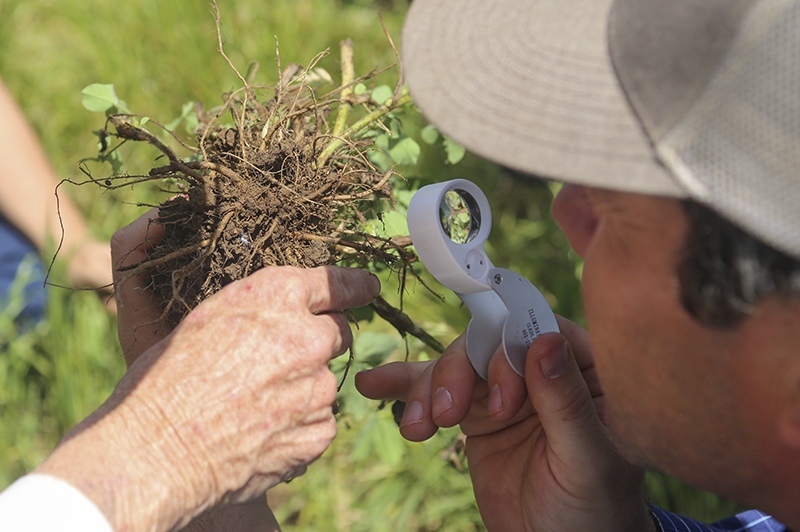
Courses in Regenerative Agriculture

CRARS offers a variety of classes and workshops in regenerative agriculture throughout the year. Opportunities also are provided by several of our associates listed on this page.
Current CRARS Course Offerings
The following classes are offered through Chico State Professional & Continuing Education (PCE).(opens in new window) They are available to be taken singly for continuing education purposes or general interest and are most appropriate for current agricultural professionals, farmers, producers, and members of the public with an agriculture background.
Regenerative Agriculture Systems: Theory & Practice
An introduction to management approaches that focus on the interactions and synergies of ecosystem processes (energy flow, water and nutrient cycles, and community dynamics) to leverage the power of photosynthesis to improve water use efficiency and soil health across a variety of agro-ecosystems using appropriate production practices.
6 weeks, 48 CEUs
Introduction to Soil Health Management
Understand the connection between soil health and primary productivity and, ultimately, food and fiber quality. This course will cover soil properties, metrics of soil health, and influences of production practices and soil management systems (integrated practices) on these components. Soil sampling, analysis and interpretation are presented, along with monitoring strategies to ensure on-farm success.
6 weeks, 48 CEUs
Whole Farm/Ranch Planning & Design
This course supports the transitional process to a plan, implement, monitor, replan management framework that encourages producers and ag professionals to work through a systems lens that addresses economic success and improved land health. Participants will develop a vision that incorporates management goals, establish a land management plan, and identify metrics to quantify outcomes and reassess their plan annually.
6 weeks, 48 CEUs
Ecological Range Management & Adaptive Grazing
This course will address whole ranch and grazing management planning and design with a focus on climate smart/regenerative practice implementation and assessment. We will explore key concepts that include Holistic Management (HMI or Savory) and the Nine Step Conservation Planning Process from NRCS.
6 weeks, 48 CEUs
Pollinator Habitat
This will be a course that explores agricultural practices that enhance pollination services by native pollinators and honeybees. It will include the importance of establishing pollinator habitat and hedgerows, use of pollinator-friendly cover crops, choosing plants, and other pollinator-friendly practices.
4 weeks, 32 CEUs
Regenerative Forestry
In this course we will cover our current understanding of the diversity of life belowground in forests and the fluxes of plant carbon to the belowground ecosystem, and explore how forestry practices could be adapted to promote soil biodiversity and function.
4 weeks, 32 CEUs
Carbon Farm Planning
Carbon Farming is a whole farm approach to optimizing carbon capture on working landscapes by implementing practices that are known to improve the rate at which CO2 is removed from the atmosphere and stored in plant material and/or soil organic matter. Carbon Farm planning is a framework for engaging with the agroecosystem processes that drive system change taking into consideration the unique characteristics of a specific property.
4 weeks, 32 CEUs
Courses by Other Organizations
Understanding Ag
A wealth of resources(opens in new window) for workshops, field days, online classes, multiple day in-person Soil Health Academy schools in various locations across the United States led by well-known regenerative agriculture experts such as Gabe Brown and Allen Williams.
Regen Ag Academy
Offered through Kind Harvest(opens in new window), an agriculture social network associated with John Kempf, the founder of Advancing Eco Agriculture.
Holistic Management International
Training programs(opens in new window) using a comprehensive decision-making process centered around regenerative grazing, crops, and financial planning.
Pasture Project at the Wallace Center
Offers a wide assortment of free resources(opens in new window) such as publications, research reports, video tutorials, and archived webinars related to regenerative grazing and cover crops.
